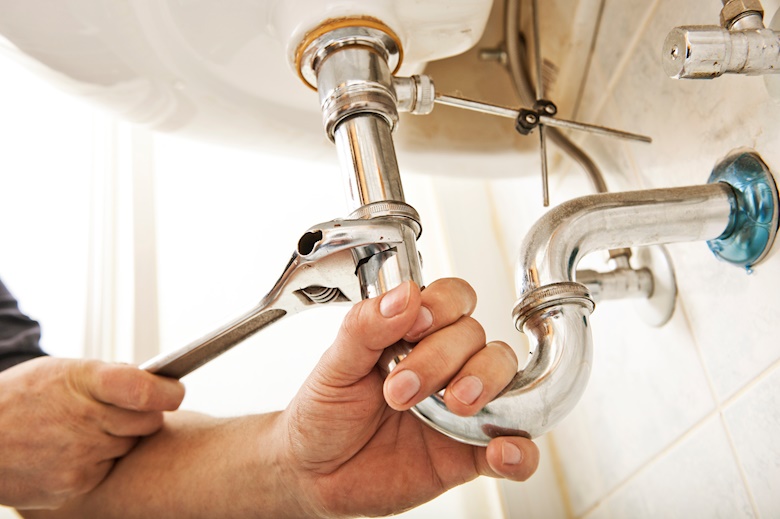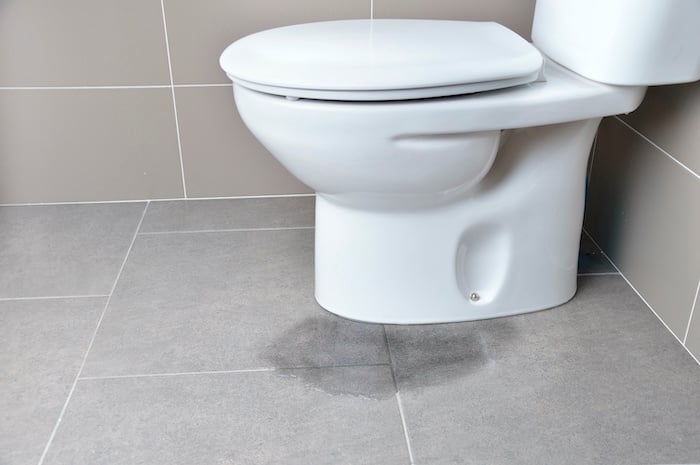5 Repetitive Water Leak Factors
5 Repetitive Water Leak Factors
Blog Article
Do you find yourself trying to find advise around Where to Find Water Leaks?

"Beware of little costs. A tiny leak will sink an excellent ship." - Benjamin Franklin.
He could not have been much more appropriate because water leakages in our homes result in a waste of resources, raising our water expenses. This boost may seem minimal at first, it can lead to substantial costs that can damage your bank. Aside from a rise in expenses, water leaks likewise cause undesirable natural development, structural damages, and also electric dangers.
Determining if you have a water leak isn't always easy because of being unable to see most of the pipework in your house. Nevertheless, If you have had a boost in your water bills recently, noticed water stains on ceilings and also walls, scented poor odor, and so on. You might intend to consider requesting plumbing solutions to get it took a look at.
There are a number of root causes of water leakages, and we have actually compiled the usual factors below. Examine to see if you have actually had relevant problems in your home just recently.
Blocked drains
Food fragments, dust, and grease can trigger clogged drains pipes and block the flow of water in and out of your sink. If undealt with, raised pressure within the gutters can cause an overflow and finish up breaking or rupturing pipes. To stay clear of clogged drains in your home, we encourage you to prevent putting particles down the drain and regular cleaning of sinks.
High water pressure
You noticed your home water pressure is greater than typical however after that, why should you care? It's out of your control.
It would be best if you cared because your typical water stress need to be 60 Psi (per square inch) and although your house's plumbing system is designed to hold up against 80 Psi. An increase in water pressure can put a strain on your house pipelines as well as result in cracks, or worse, ruptured pipes. If you ever before notice that your house water pressure is greater than normal, connect with an expert concerning managing it.
Rust
As your pipework gets older, it obtains weak and also extra at risk to rust after the frequent flow of water through them, which can eat away at pipes as well as create cracks. A noticeable indication of deterioration in your house plumbing system is discoloration and although this could be difficult to find as a result of the majority of pipelines hidden away. We advise doing a frequent check-up every couple of years and change pipelines once they are old to make certain a sound plumbing system
Deteriorated pipeline joints
Pipe joints are the parts of our plumbing system where the pipelines attach. They are the weakest point of our plumbing system. Therefore, they are extra prone to damage. It is vital to note that although pipelines are created to withstand stress as well as last for some time, they weren't created to last for life; therefore, they would certainly weaken gradually. This degeneration might result in cracks in plumbing systems. A common indication of harmed pipe joints is extreme sound from taps.
Damaged seals
An additional cause of water leaks in houses is damaged seals of residence appliances that use water, e.g., a dishwasher. When such appliances are set up, seals are set up around water adapters for easy passage of water via the machine. For this reason, a damaged seal can cause leakage of water when in operation.
With little or no knowledge of plumbing, comprehending your house's plumbing system enough to fix several of these problems (without consequence) can be a problem. Connect with plumbing professionals in Pittsburgh, Providence, Rochester, and environ today, and also they'll make those problems disappear.
He could not have been extra best since water leakages in our homes result in a waste of sources, increasing our water expenses. If you have had a rise in your water expenses recently, saw water spots on walls and also ceilings, smelt poor odor, and so on. An increase in water pressure can put a stress on your house pipelines as well as lead to splits, or even worse, ruptured pipes. An additional cause of water leakages in houses is damaged seals of home appliances that use water, e.g., a dishwasher. When such home appliances are installed, seals are installed around water adapters for very easy flow of water via the equipment.
Guide To Water Leaks In The Home
Water leaks in the home are one of the most common problems homeowners experience. It could be anything from the annoying sound of a dripping tap to a leaking pipe in the bathroom. In this post, we’ll take a look at the most common causes of water leaks.
Water Leaks In The Home – What Are The Issues?
Just about every Australian home will experience some water leaks from time to time. It’s simply a part of life. Although common, water leaks shouldn’t be left unattended and need to be resolved ASAP to prevent damage to the home.
Statistics indicate that the average Australian uses approximately 340,000 litres of water per year. While a considerable amount of this would be by consumption, due to household water leaks, a percentage of this figure is simply just wasted water due to dripping taps, cracked pipes or corroded and compromised fixtures.
Let’s look at some issues that water leaks can cause in the home.
What Causes a Dripping Tap?
The most common reason a tap will drip or leak is due to a worn rubber tap washer. Over time these become brittle and can crack, break apart or go out of shape. The end result is an ineffective seal. The solution is to replace the tap washer or call a professional to do it.
The tap may also need to be reseated with a reseating tool to form a flat surface for the rubber washer to seal against.
What Causes Water Leaks In Ceilings?
If your ceiling is leaking water it could be due to a problem with the roof, in which case you would need to have it inspected and repaired.
Another common reason for water leaks in ceilings is when there is plumbing overhead and a pipe has developed a leak. It could simply be that the plumbing is old. Metal pipes and copper pipes can corrode and degrade over time.
You’ll definitely want to call a plumber to repair the problem before too much damage occurs.
Why Is There a Leak Under Your Sink?
This can occur in the kitchen, the bathroom or even the laundry. Water leaks in the cabinet under a sink are also very common in many homes. So what’s the cause?
There could actually be a number of causes. One of the most obvious ones would be a leaking pipe that may have developed a hole or crack. Another cause could be a loose or faulty pipe or hose connection. It could be as simple as tightening the connection, but if not, call in a plumber to resolve the issue.
A potential third reason might be a poor seal around the sink itself or where the plughole is. In this case, some silicon should resolve the issue.
Water Leaks In-Wall Cavities – What’s the Cause?
Water leaks within the walls of your home can end up causing severe damage and can potentially seep into your home’s electrical system as well. It’s not something you want to delay getting fixed.
Copper piping for your hot water supply often runs through the wall cavities. Over time the pipes can corrode and develop small holes that get bigger the longer the leak is left unattended. Other water pipes will run behind the walls too and could have burst due to high water pressure or a defect in the pipe.
Water leaks in the wall cavities could also be due to rain getting in, which would mean there’s an area on your home’s exterior that’s compromised.
https://refinedplumbingsunshinecoast.com.au/guide-to-water-leaks-in-the-home/

I was shown that article on Where to Find Water Leaks through a friend on a different website. Liked our review? Please share it. Help somebody else discover it. We take joy in reading our article about Reasons for Water Heater Leaks.
Protect your home, dial! Report this page